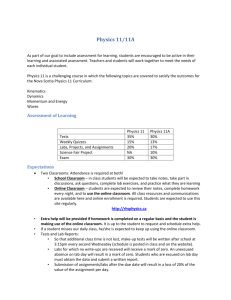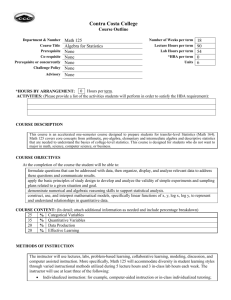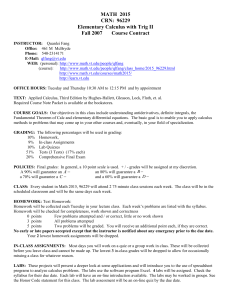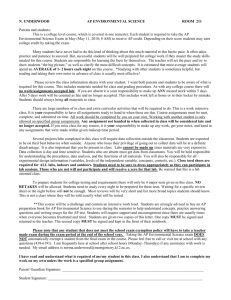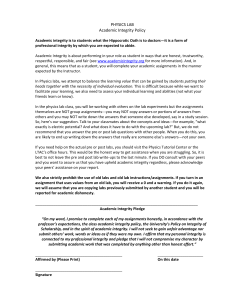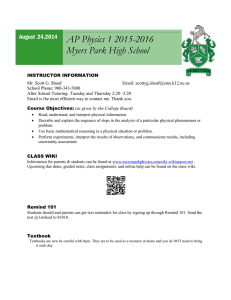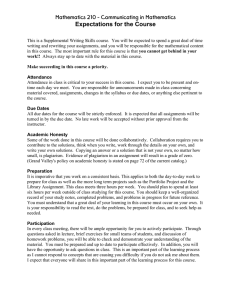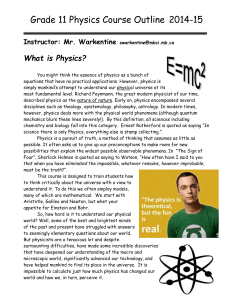Principles of Technology I & II
advertisement
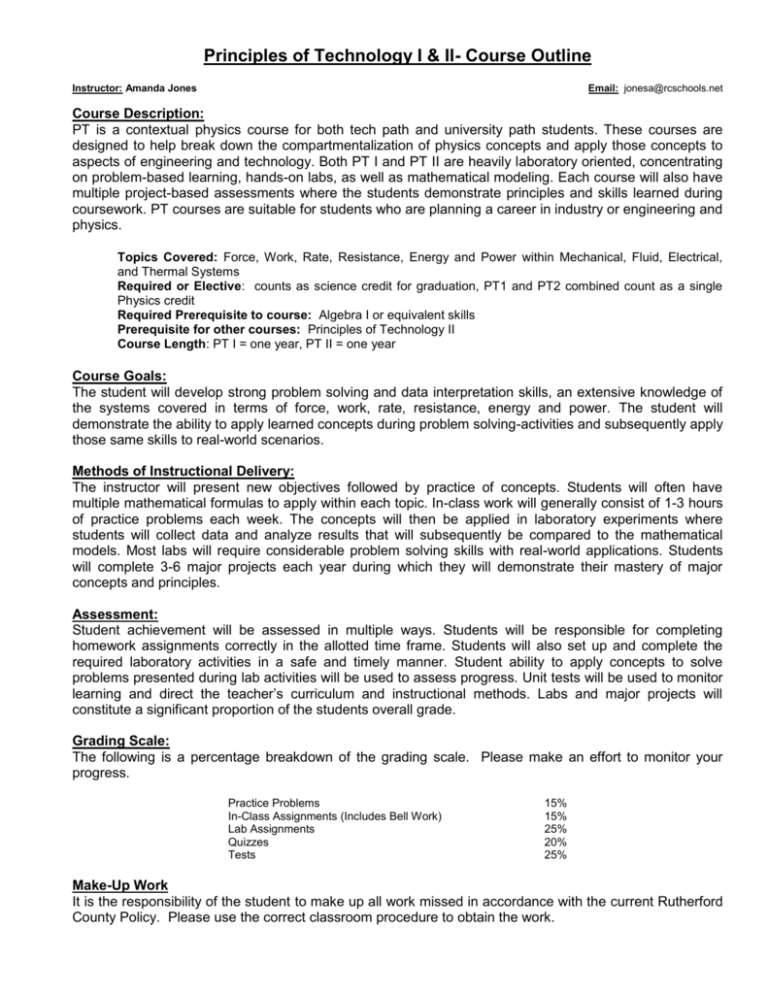
Principles of Technology I & II- Course Outline Instructor: Amanda Jones Email: jonesa@rcschools.net Course Description: PT is a contextual physics course for both tech path and university path students. These courses are designed to help break down the compartmentalization of physics concepts and apply those concepts to aspects of engineering and technology. Both PT I and PT II are heavily laboratory oriented, concentrating on problem-based learning, hands-on labs, as well as mathematical modeling. Each course will also have multiple project-based assessments where the students demonstrate principles and skills learned during coursework. PT courses are suitable for students who are planning a career in industry or engineering and physics. Topics Covered: Force, Work, Rate, Resistance, Energy and Power within Mechanical, Fluid, Electrical, and Thermal Systems Required or Elective: counts as science credit for graduation, PT1 and PT2 combined count as a single Physics credit Required Prerequisite to course: Algebra I or equivalent skills Prerequisite for other courses: Principles of Technology II Course Length: PT I = one year, PT II = one year Course Goals: The student will develop strong problem solving and data interpretation skills, an extensive knowledge of the systems covered in terms of force, work, rate, resistance, energy and power. The student will demonstrate the ability to apply learned concepts during problem solving-activities and subsequently apply those same skills to real-world scenarios. Methods of Instructional Delivery: The instructor will present new objectives followed by practice of concepts. Students will often have multiple mathematical formulas to apply within each topic. In-class work will generally consist of 1-3 hours of practice problems each week. The concepts will then be applied in laboratory experiments where students will collect data and analyze results that will subsequently be compared to the mathematical models. Most labs will require considerable problem solving skills with real-world applications. Students will complete 3-6 major projects each year during which they will demonstrate their mastery of major concepts and principles. Assessment: Student achievement will be assessed in multiple ways. Students will be responsible for completing homework assignments correctly in the allotted time frame. Students will also set up and complete the required laboratory activities in a safe and timely manner. Student ability to apply concepts to solve problems presented during lab activities will be used to assess progress. Unit tests will be used to monitor learning and direct the teacher’s curriculum and instructional methods. Labs and major projects will constitute a significant proportion of the students overall grade. Grading Scale: The following is a percentage breakdown of the grading scale. Please make an effort to monitor your progress. Practice Problems In-Class Assignments (Includes Bell Work) Lab Assignments Quizzes Tests 15% 15% 25% 20% 25% Make-Up Work It is the responsibility of the student to make up all work missed in accordance with the current Rutherford County Policy. Please use the correct classroom procedure to obtain the work.

